Kartik Mahajan
Can I Trust You? A User Study of Robot Mediation of a Support Group
Feb 11, 2020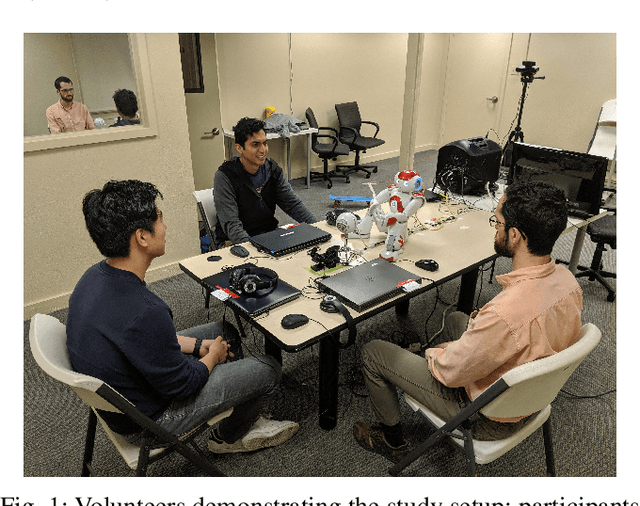

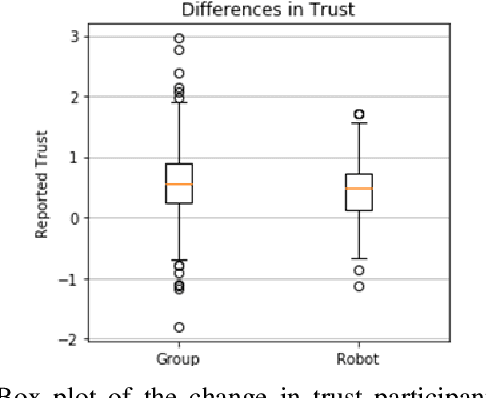

Abstract:Socially assistive robots have the potential to improve group dynamics when interacting with groups of people in social settings. This work contributes to the understanding of those dynamics through a user study of trust dynamics in the novel context of a robot mediated support group. For this study, a novel framework for robot mediation of a support group was developed and validated. To evaluate interpersonal trust in the multi-party setting, a dyadic trust scale was implemented and found to be uni-factorial, validating it as an appropriate measure of general trust. The results of this study demonstrate a significant increase in average interpersonal trust after the group interaction session, and qualitative post-session interview data report that participants found the interaction helpful and successfully supported and learned from one other. The results of the study validate that a robot-mediated support group can improve trust among strangers and allow them to share and receive support for their academic stress.
Long-Term Personalization of an In-Home Socially Assistive Robot for Children With Autism Spectrum Disorders
Nov 18, 2019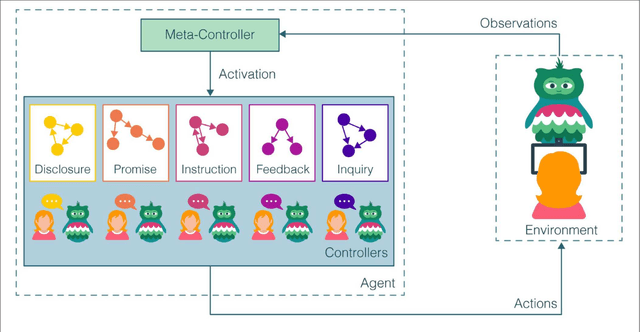
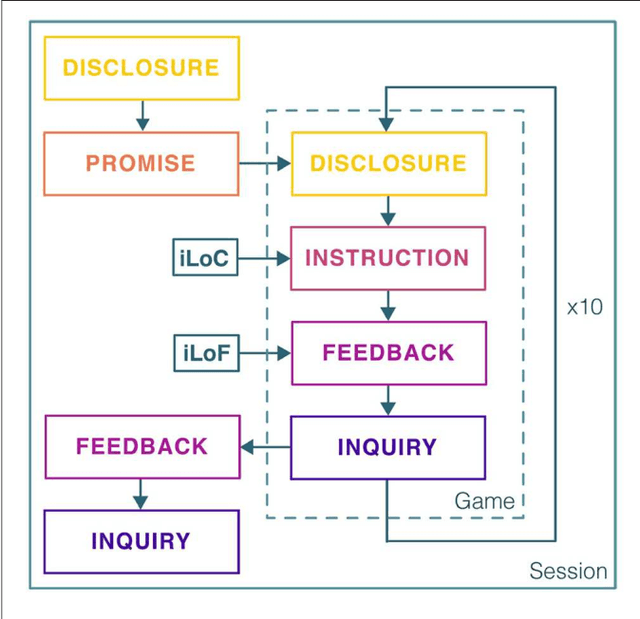
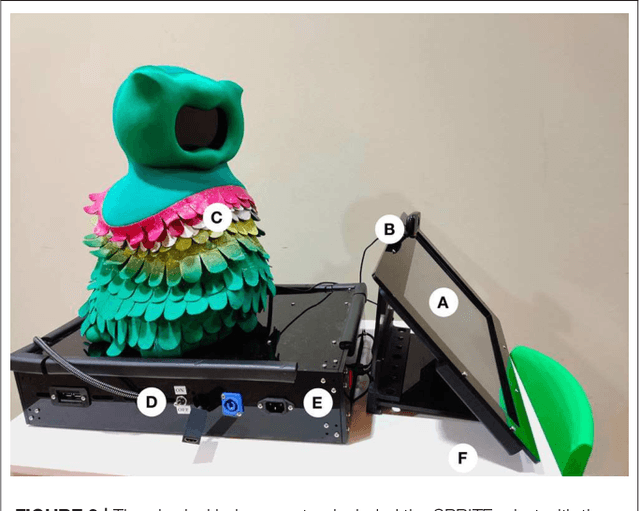
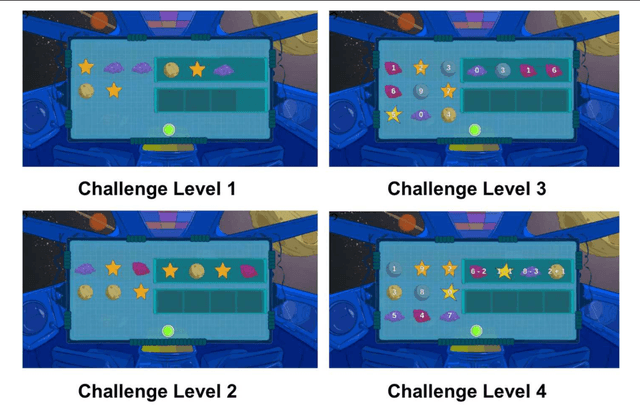
Abstract:Socially assistive robots (SAR) have shown great potential to augment the social and educational development of children with autism spectrum disorders (ASD). As SAR continues to substantiate itself as an effective enhancement to human intervention, researchers have sought to study its longitudinal impacts in real-world environments, including the home. Computational personalization stands out as a central computational challenge as it is necessary to enable SAR systems to adapt to each child's unique and changing needs. Toward that end, we formalized personalization as a hierarchical human robot learning framework (hHRL) consisting of five controllers (disclosure, promise, instruction, feedback, and inquiry) mediated by a meta-controller that utilized reinforcement learning to personalize instruction challenge levels and robot feedback based on each user's unique learning patterns. We instantiated and evaluated the approach in a study with 17 children with ASD, aged 3 to 7 years old, over month-long interventions in their homes. Our findings demonstrate that the fully autonomous SAR system was able to personalize its instruction and feedback over time to each child's proficiency. As a result, every child participant showed improvements in targeted skills and long-term retention of intervention content. Moreover, all child users were engaged for a majority of the intervention, and their families reported the SAR system to be useful and adaptable. In summary, our results show that autonomous, personalized SAR interventions are both feasible and effective in providing long-term in-home developmental support for children with diverse learning needs.
* 30 pages, 10 figures, Frontiers in Robotics and AI journal
 Add to Chrome
Add to Chrome Add to Firefox
Add to Firefox Add to Edge
Add to Edge